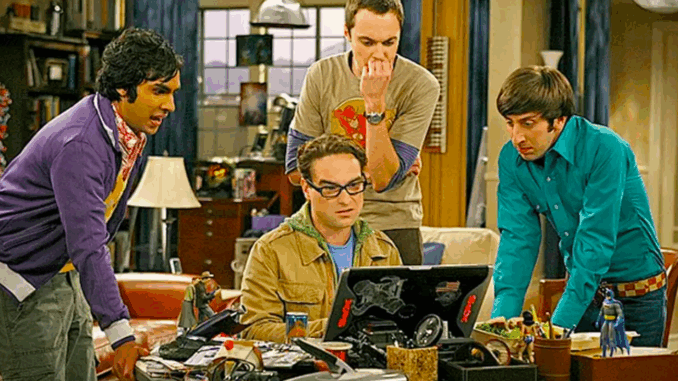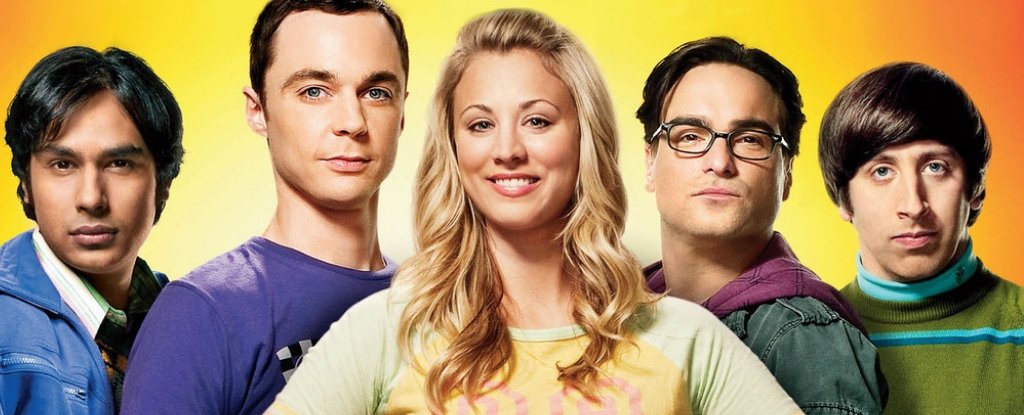
From physics punchlines to comic book references, The Big Bang Theory didn’t just reflect geek culture—it helped redefine it for a global audience.
When The Big Bang Theory premiered in 2007, the idea that four Caltech scientists obsessed with Star Trek, quantum mechanics, and video games could anchor a prime-time comedy felt risky. At the time, “nerd” still carried a whiff of insult. Geekdom was a niche, often mocked, rarely respected.
By the time the series ended in 2019, everything had changed. Comic-Con had become a global event, Marvel dominated the box office, and geek culture wasn’t underground—it was mainstream. And The Big Bang Theory? It had become one of the most-watched television shows on Earth.
It’s impossible to talk about that shift without crediting Sheldon, Leonard, Howard, Raj—and the show that helped turn obscure science into watercooler conversation.
The Early Risk: Jokes About Schrödinger’s Cat
Chuck Lorre and Bill Prady knew they were walking a fine line. How do you make a sitcom that’s both funny to general audiences and accurate enough to earn the approval of real scientists?
Their solution was bold: don’t dumb it down—lean in.
In early seasons, viewers encountered real physics equations on whiteboards, references to string theory, and detailed discussions of entropy. Science advisor Dr. David Saltzberg, a UCLA physicist, was hired to vet every line.
Sure, the punchlines helped. But The Big Bang Theory made physics sexy in a way that no other show had ever dared.
And then there were the comic books.
The Rise of Nerd Culture

While other shows featured clubs and bars, The Big Bang Theory gave us the comic book store, Halo Night, and the holy grail of fandom: San Diego Comic-Con. The series didn’t just include these references—it celebrated them.
Suddenly, saying “I’m a fan of Firefly” wasn’t a punchline. It was cool.
Major nerd icons began guest-starring: Stephen Hawking, Elon Musk, George Takei, Stan Lee, and even Carrie Fisher. And when Star Wars released new films, the show centered episodes around fan anticipation.
It wasn’t pandering—it was participation. And fans responded in droves.
A New Kind of Masculinity
Perhaps most radical was how The Big Bang Theory redefined masculinity.
These men weren’t jocks. They weren’t emotionally fluent. But they loved deeply—in their own awkward, math-infused way. They wore superhero shirts, obsessed over collectibles, and still fell in love, started families, and evolved emotionally.
In many ways, Big Bang offered a counter-narrative to the traditional sitcom male lead: smart was sexy, and empathy could grow even in the most rigid characters.
Sheldon’s development—particularly his relationship with Amy—became symbolic of that change.
And Then Came the Women
By Season 4, the show had introduced two game-changers: Amy Farrah Fowler (Mayim Bialik) and Bernadette Rostenkowski (Melissa Rauch). These weren’t just love interests—they were scientists. Neurobiologists, microbiologists, unapologetically intelligent women who held their own.
Amy and Bernadette didn’t just expand the cast—they deepened the show’s exploration of science culture, showing that brilliance isn’t gendered.
Mayim Bialik, a real-life PhD in neuroscience, brought authenticity to Amy’s dialogue, and her dynamic with Sheldon became a fan-favorite romance.
Science with a Soul
What The Big Bang Theory ultimately accomplished was balance: it never asked you to understand the physics—but it respected those who did.
It taught viewers to listen to smart characters instead of laugh at them. It made niche jokes feel accessible. And it gave audiences a new appreciation for the weird and wonderful minds that power our world.
A 2017 study even showed that enrollment in physics courses saw a noticeable uptick during the show’s peak seasons. And science organizations credited the series for helping reduce stigma around being a “nerd.”
A Legacy That’s More Than Laughter
Today, science-centric shows are no longer rare. From Young Sheldon to more grounded dramas like Scorpion, the TV landscape has shifted to accommodate curiosity. And being obsessed with facts, formulas, or fandoms is no longer a barrier to popularity—it’s often the engine behind it.
The Big Bang Theory didn’t just tell jokes. It changed who got to tell them.
It handed the mic to the “others”—the comic book lovers, the lab rats, the trivia buffs—and reminded us that intelligence, in all its forms, can be beautiful, funny, and worth celebrating.